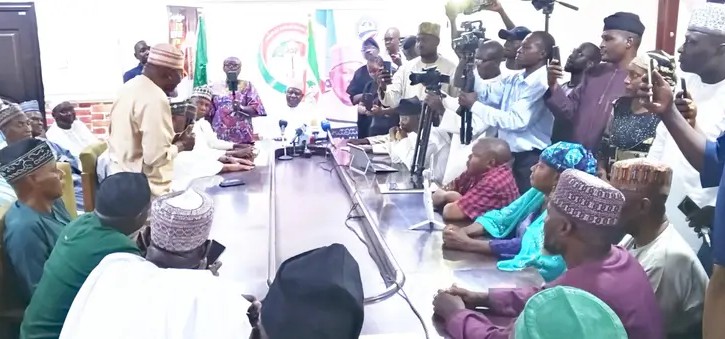U.S. Imposes Tariffs on Several African Countries in New Executive Order
In a significant trade development, the United States has levied tariffs on multiple African nations in an Executive Order signed by President Donald Trump. The decree, titled “Further Modifying the Reciprocal Tariff Rates,” was released by the White House on Thursday.
A total of 14 African countries will face a 15 percent tariff on a range of goods entering the U.S. Effective from 12:01 a.m. onwards, these include Nigeria, Zimbabwe, Zambia, Uganda, Mozambique, Mauritius, Ghana, Malawi, Lesotho, Madagascar, and others.
Some countries received varying degrees of tariffs. South Africa, Libya, and Tunisia were slapped with 30 percent, 30 percent, and 25 percent tariffs respectively. The list also covers non-African countries such as the United Kingdom (10 percent), India (25 percent), and Japan (15 percent).
This move is not unprecedented. On April 2, 2025, the U.S. under Trump had initially announced plans to impose import tariffs on countries worldwide, with Nigeria being one of the included nations.
The Centre for the Promotion of Private Enterprise (CPPE) previously analyzed the potential impact of these tariffs on the Nigerian economy, highlighting the difficulties homegrown businesses might face in overseas markets.
The U.S. tariff impositions follow a global trade trend, with nations seeking to protect their domestic industries and influence international markets. However, these measures can potentially disrupt global supply chains and hiking prices for consumers.
As the world’s largest economy, the U.S.’s tariff policies have significant global ramifications, affecting economies, trade relations, and potentially reshaping geopolitical dynamics. The full extent of these changes will unfold over time, with affected countries already reevaluating their economic strategies in response.



